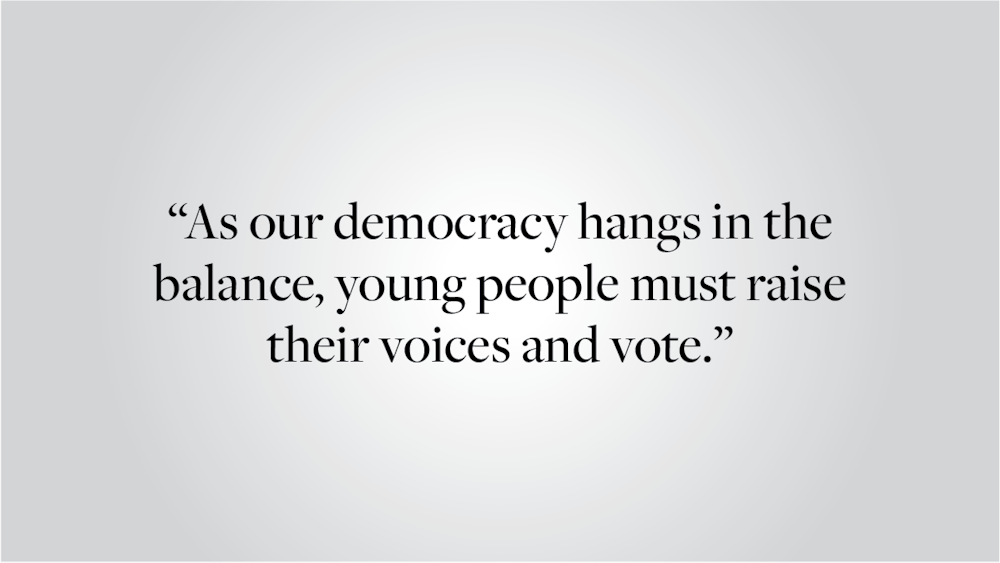Today is Election Day. Voters across the country head to the polls to decide crucial contests for the Senate, House and governorships, as well as critical local and state offices. Marred by polarization and bitter divides, the United States faces a deeply uncertain future. Whatever happens today will have major implications for the next few years of American politics.
As our democracy hangs in the balance, young people must make their voices heard and vote.
But youth turnout, historically, has been unacceptably low compared to other age cohorts. Despite its storied history of student activism, Brown is no exception. In 2018, the year of the last midterm election, only 45.1% of eligible students voted. While turnout was slightly higher at Brown than the national average for colleges and universities, the fact that less than half of eligible students voted was a glaring failure. As a community, we should strive to vote at much higher rates.
The reasons why young people in particular do not vote are understandable. Barriers to vote can be high — in some states, it can be difficult to request and return an absentee ballot, for example. Many young people have grown disillusioned by politicians who fail to tackle some of the key issues animating our generation’s political conscience ― whether it be racial justice, climate change or healthcare access.
Still, we must not lose hope. Voting remains one of the most meaningful ways to make change.
These votes will shape the makeup of Congress and the direction of federal policy for years to come. At the local and state levels, where we’ve seen intense policy battles fought in recent years, our voices will decide school boards, elected state judiciaries, key ballot measures, secretaries of state, mayors ― individuals, institutions and policies that will impact, in no small measure, the moral core of this country.
If national politics can feel too abstract, consider the recent debates about the proposed student housing regulation before the Providence City Council, which has the potential to literally shape the way students live. Whether at the local or national level, such policy decisions ― with real, tangible effects ― do not occur in a vacuum. They are created by the elected officials we pick at the ballot box. Voting, of course, is just one component of being an engaged citizen, in addition to actions like protest and advocacy, but it’s one of the most critical.
Today, as scores of election deniers run for office across the country, what’s at stake this year is nothing less than democracy itself. The future of voting rights and the integrity of our elections depend on us.
So, Brown students, go mail your ballots if you haven’t already. Or go to the polls if you’re registered in Rhode Island. If you’re not registered or forgot to vote, you can register now and vote next time ― it’s never too late to help shape our democracy.
Voting matters. We should take it seriously.
Editorials are written by The Herald’s Editorial Page Board. This editorial was written by its editor Johnny Ren ’23 and members Irene Chou ’23, Caroline Nash ’22.5, Augustus Bayard ’24, Devan Paul ’24 and Kate Waisel ’24.





